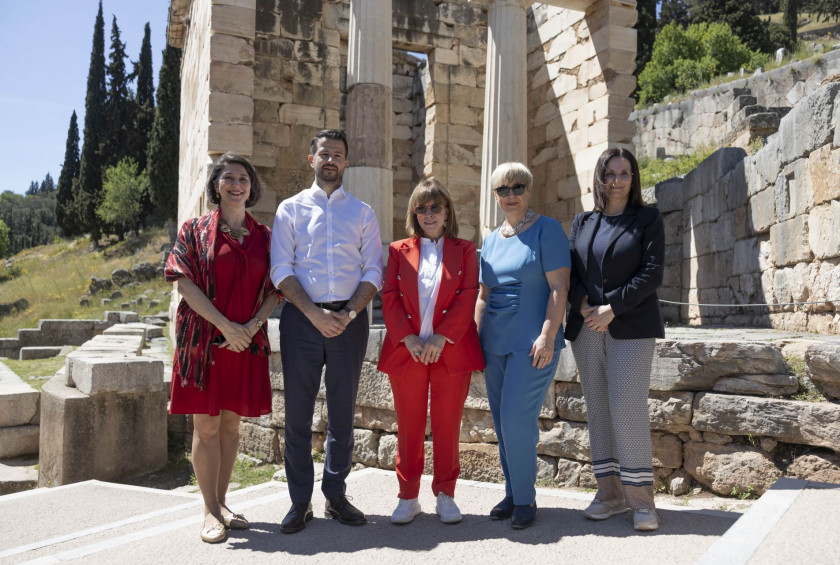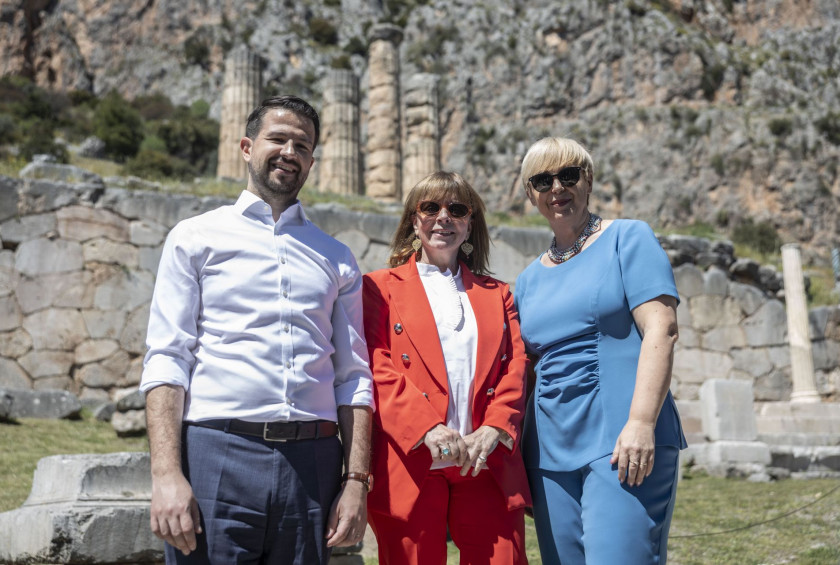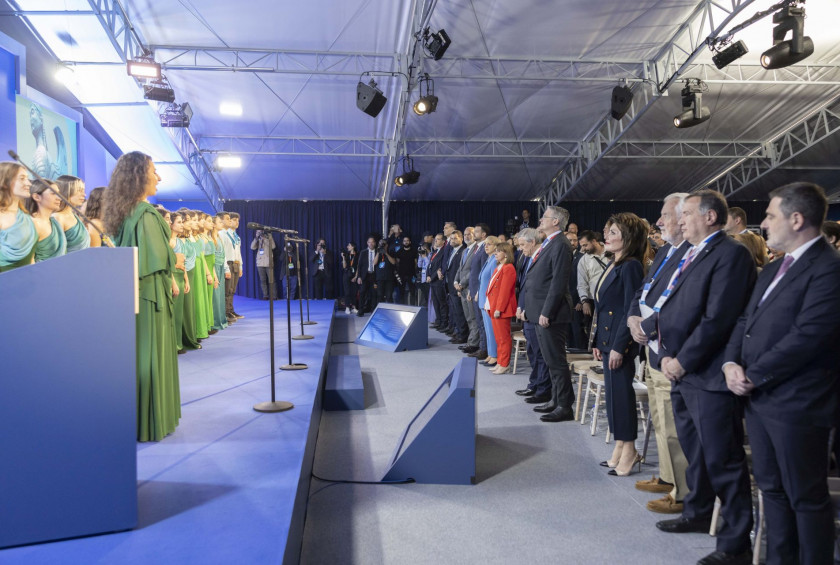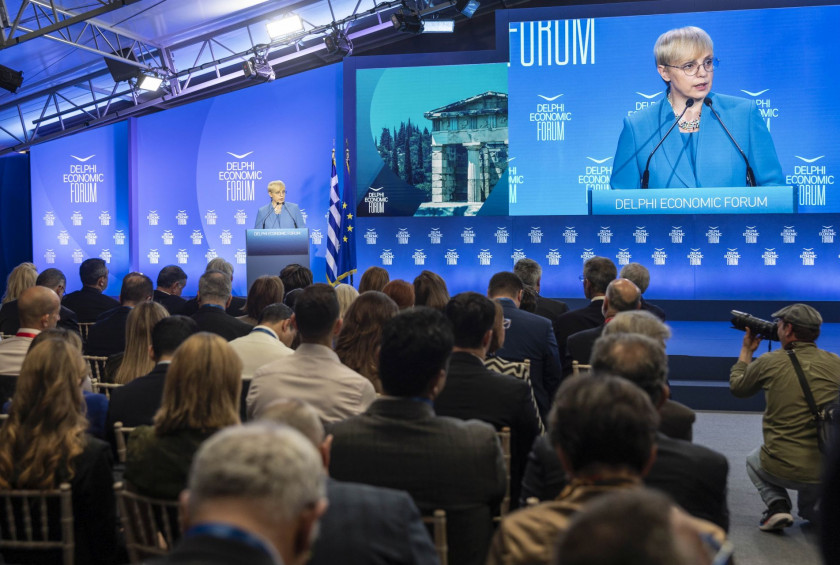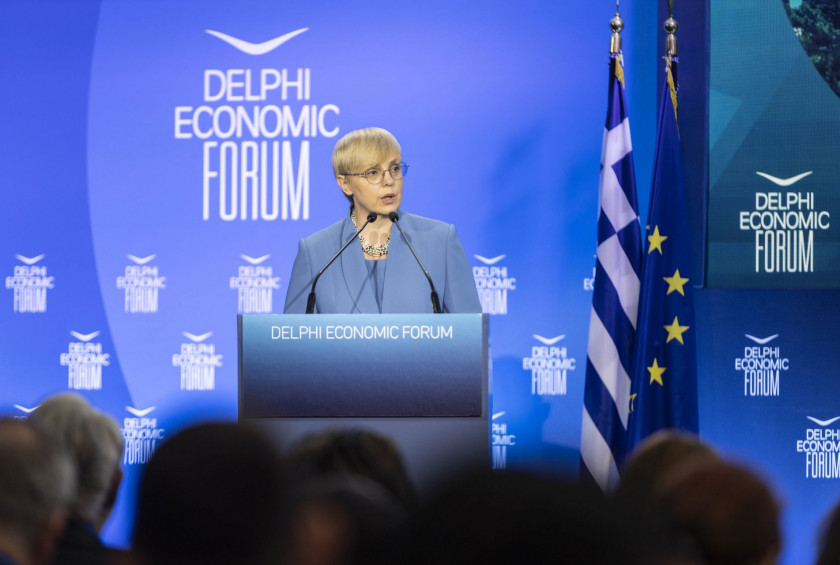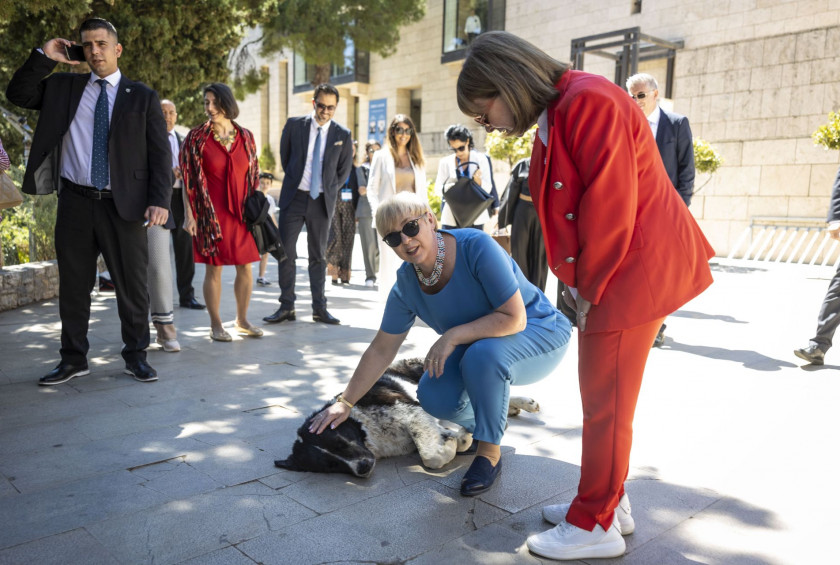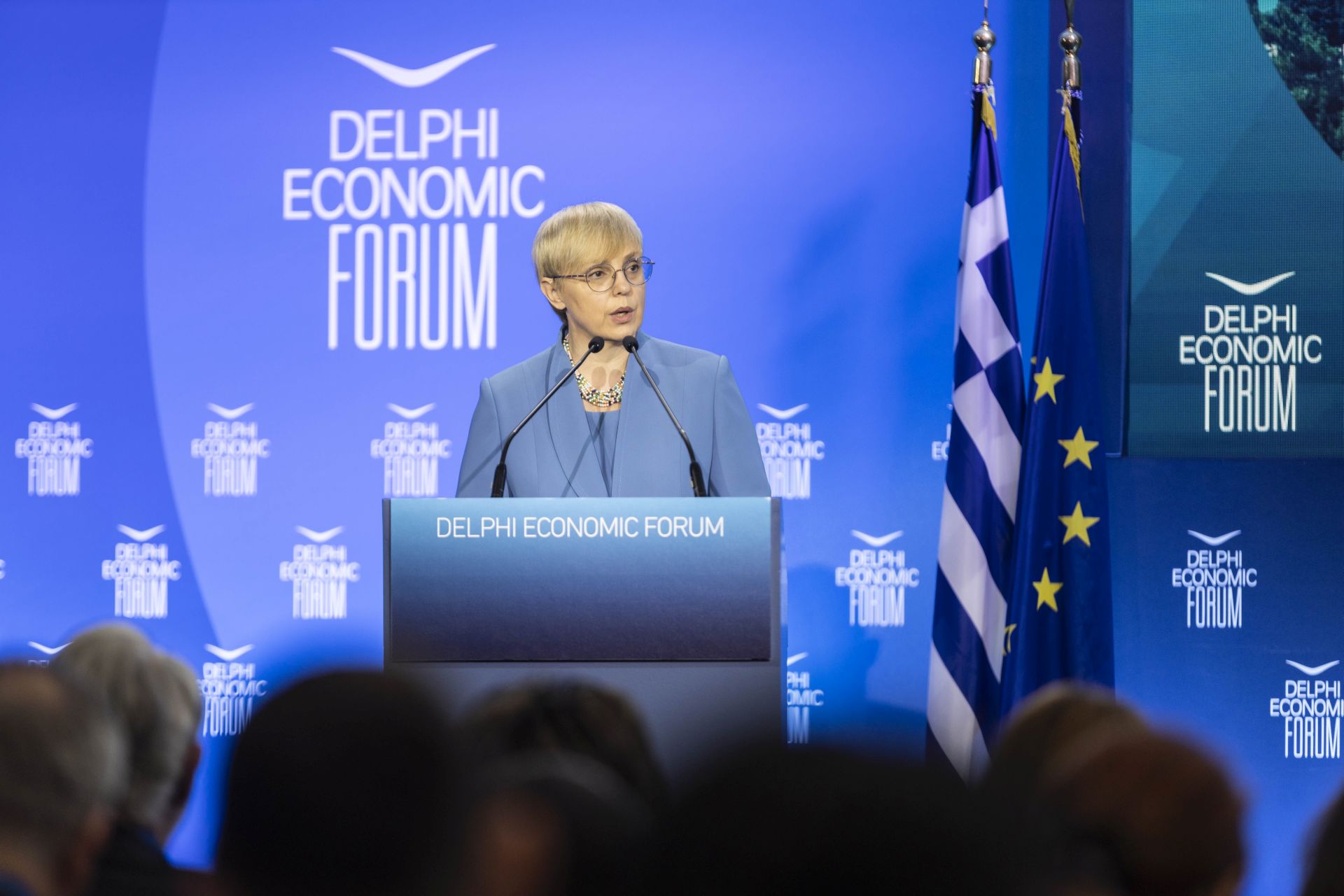
Photo: Matjaž Klemenc/Office of the President of the Republic of Slovenia
It is important to invest in indivisible peace and human dignity for all
As part of her visit to the Hellenic Republic, the President of the Republic of Slovenia, Nataša Pirc Musar, today attended the opening ceremony of the 9th Delphi Economic Forum, which took place at the European Cultural Centre in Delphi.
Delphi (Greece), 10 Apr 2024
News
As keynote speaker, she briefly touched on current topical international political issues, focusing on issues that are crucial in finding a path towards a more stable and secure future for all. She devoted particular attention to the concept of development justice.
As she pointed out in her opening remarks, despite the fact that we have made great economic and scientific progress as a civilisation, we have not yet achieved the goals enshrined in the UN Charter. We are witnessing wars of aggression, terrorist attacks and inter-communal conflict on an unprecedented scale. The sanctity of life and human dignity are erased for those belonging to the wrong ethnicity or religion. Civil society is also increasingly a target for the misuse of artificial intelligence.
"It is certainly not in our common interest to use military force, to use the right to veto in the UN Security Council or to completely ignore the Security Council in pursuit of political and military objectives. The idea of military problem solving is not only contrary to international law. It is also proof – I dare say – of the underestimation of human intellectual potential," she pointed out, adding, "a peaceful world can only be based on sustainable development." Sustainable development, however, should not be just a principle without a solid, recognisable foundation – development justice, i.e. sustainable development that redresses injustices. It makes no sense to talk about sustainable development as such when there are millions of hungry and malnourished people and millions of young people without prospects. Development justice is closely linked to the right to a decent life, which must be granted to every human being. A decent life for all depends on an economic and social orientation that is sustainable and friendly to both people and the environment. As the President stressed, this requires a deep ethical stance of the international community, otherwise we will not survive as a civilisation.
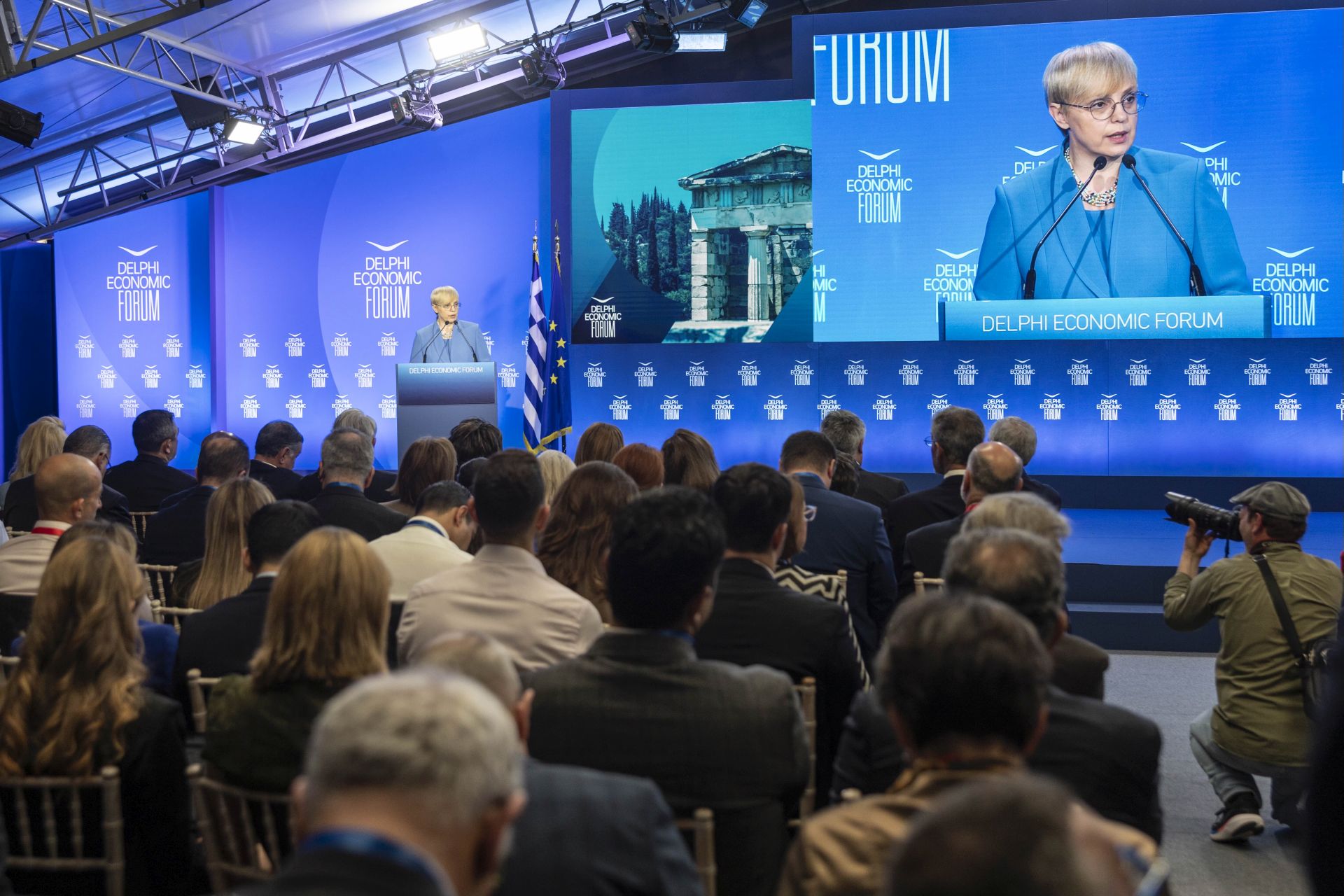
More needs to be done to convince people that investing in our environment and in fair development is worthwhile. Too many politicians continue to legitimise their existence primarily through economic growth figures. But measures such as slashing public spending, privatisation, and cutting taxes are not the way to achieve greater development justice. Unjust development wreaks harmful effects. For example, the poorest are the first victims of war and climate change around the world as well as at home.
The richer part of this planet should learn to live with less. Economic growth does not always reduce poverty or create equal opportunities for progress. To live with less and better, action is needed to tax the richest – both companies and individuals – more fairly. Taxing their wealth is an investment in the proper development of the society in which they are a part.
As President Pirc Musar pointed out in her closing remarks, we must not allow future generations to be left with a heavy environmental burden, destroyed habitats and a deeply divided society. Achieving development justice is not a distant dream. It can be achieved when those who have the money realise that their investments in sustainable development and development justice will bring long-term benefits. Without sustainable and equitable development, our civilisation has no future.
"If we want to live better, we need to realise that indivisible peace and human dignity are universal values that are not for sale. We need to invest in both," stressed the President, concluding that this is the best investment humanity can make in maintaining political stability and international peace and security.

